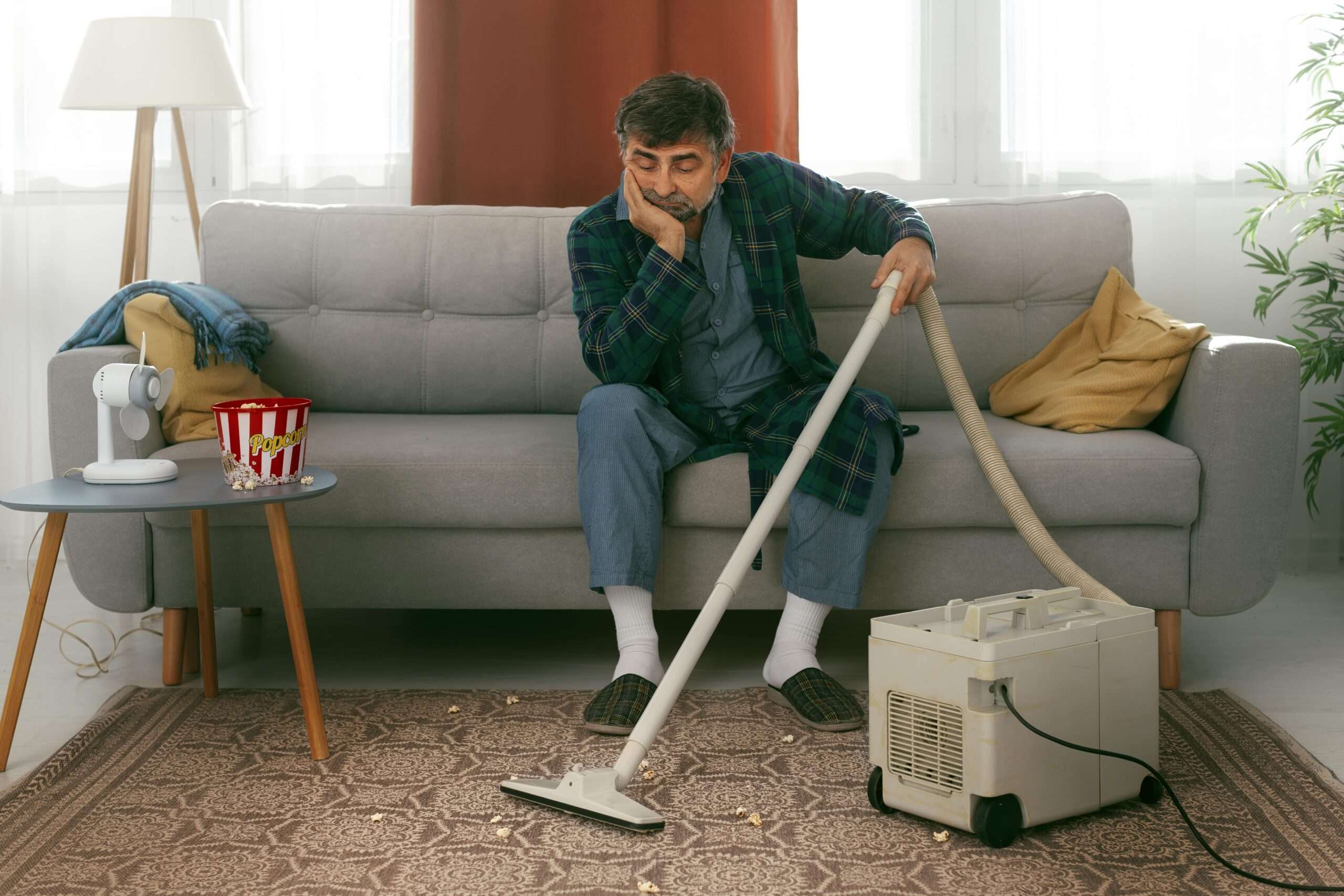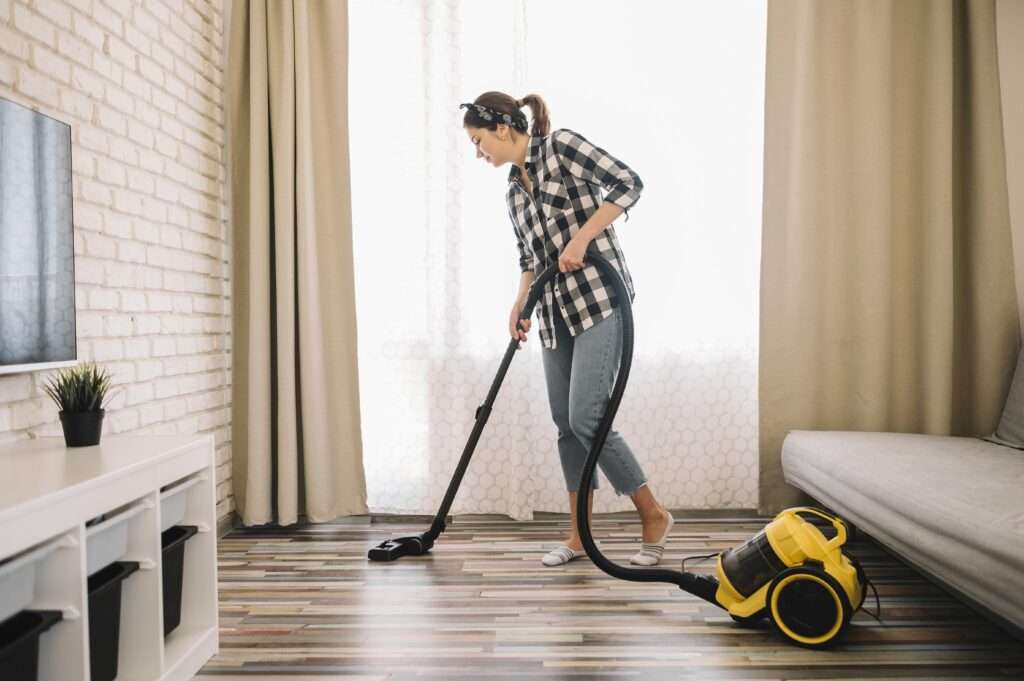
Even if vacuum cleaners are winning hearts globally for their convenience, safety, and efficiency in abiding by hygiene and cleanliness in modern households, a discussion has been lurking recently about whether can vacuum cleaners catch fire. Although in the modern days, vacuum cleaners are mandatory and safe household appliances efficiently sucking up and retaining the finest dust particles, embedded dirt, grime, and debris from our floors, it’s essential to be aware of potential vacuum cleaner hazards.
While the chances of vacuum cleaner models bursting into flames are small, it’s always wise to use them well-maintained abiding by the manufacturer’s instructions to ensure happy and effective cleaning sessions! Let us explore whether can vacuum cleaners catch fire, examining causes, statistics, and preventive measures to get rid of this underappreciated danger.
Table of Contents
Vacuum Cleaners Catching Fire? Understanding the Risk
Just like any other electrical appliances, vacuum cleaners, are engineered with components that generate heat during operation but eventually, the motor or electrical wiring gets damaged in varying degrees adding to the likelihood of sparking, overheating, and ultimately igniting a fire. The past instances of vacuum cleaners catching fire are relatively rare, but if they happen, they can result in injuries, property damage, and even fatalities.
Can Vacuum Cleaners Catch Fire? Statistics

Particular statistics on vacuum cleaners catching fire are scarce, but comprehensive data on electrical appliance fires have generated crucial insights into the occurrence of such incidents. The National Fire Protection Association (NFPA) has reported that lighting equipment encompassing household appliances like vacuum cleaners generated 9% of reported home structure fires approx. in the United States between FY 2014 and FY 2018.
Also, the U.S. Fire Administration revealed that electrical fires have been the prime reason behind residential fires, resulting in approximately 51,000 fires annually. Aldi’s Easy Home Cordless Cyclonic Stick vacuum cleaners were banned in 2020 due to instances of overheated batteries while Aldi’s Easy Home – Multicyclonic Vacuum Cleaner also stopped being manufactured due to a fire breakout incident where the motor overheated due to an obstructed dust filter.
Causes of Vacuum Cleaner Fires
The prime reasons contributing to the risk of vacuum cleaners catching fire are listed below:
Overheating: If you are continuously using your vacuum cleaner for a prolonged span or operating it beyond its recommended capacity then the vacuum’s internal components get overheated adding to the likelihood of ignition. If the components of your vacuum cleaner model, such as the electrical wiring or motor, becomes excessively hot to touch, they may malfunction due to electrical resistance or friction, leading to sparks eventually igniting nearby flammable materials.
Electrical Malfunctions: If the vacuum cleaner consists of damaged plugs, faulty wiring, or defective electrical components then the chances of sparks and subsequent fires get increased by manifold. Eventually such weak wires get more damaged and the internal conductive material gets exposed. Upon electricity passage through these exposed areas, sparks happen. Also, often improper insulation creates sparks that in turn pose a fire hazard.
Blockages: Often blockages present in the vacuum cleaner’s filter or hose restrict necessary airflow, exerting excessive pressure on the motor to work harder and potentially causing overheat.
Flammable Debris: Don’t vacuum flammable materials such as hair, paper, hair, or dust near heat sources as such debris multiplies the risk of combustion.
Can Vacuum Cleaners Catch Fire? Preventive Measures

To minimize the risk of vacuum cleaner fires, consider adopting the below-listed precautionary steps:
Regular Maintenance: Don’t forget to conduct routine inspections of your vacuum cleaner and set strict schedules for it, including checking for loose connections, frayed cords, and excessive debris buildup as these instances hinder the optimal performance of the model.
Follow Manufacturer’s Guidelines: Always stick to the manufacturer’s instructions regarding maintenance, usage, and recommended cleaning intervals of your vacuum cleaner model.
Avoid Overloading: Never overload the vacuum cleaner with vacuumed dirt and debris beyond its recommended capacity, and promptly empty the dustbin or bag as needed or as instructed in the user manual.
Clear Obstructions: Set a strict routine for clearing all blockages in the vacuum cleaner’s brush roll, hose, or filter to maintain optimal airflow coupled with preventing overheating.
Use Caution with Flammable Materials: You need to be cautious when vacuuming flammable materials and make sure they are safely disposed of and not kept near to heat sources.
Technological Advancements to Avoid Vacuum Cleaners Catching Fire
Vacuum cleaner manufacturers are constantly innovating to equip more safety features into the newly launched models and one such technology is a thermal protection mechanism that automatically shuts off the vacuum cleaner model if it detects overheating, to lessen the risk of fire.
Improved insulation design is the next big innovation to help reduce the risk of electrical sparks and short circuits within the vacuum cleaner’s components. Thirdly, fire-retardant materials are used in the construction of vacuum cleaner components to stop the quick spreading of flames in the event of an accidental fire breakout. Also nowadays, modern vacuum cleaner models are equipped with sophisticated monitoring systems to uninterruptedly assess it’s temperature and associated electrical conditions.
In case if any issues like voltage fluctuations or overheating is detected, then the system can intervene on its own to prevent potential fire hazards. In addition to this, leading vacuum cleaner manufacturers abide by strict electrical safety regulations, conduct rigorous testing of electrical components to detect and address potential vulnerabilities and engineer vacuum cleaners to minimize the risk of fire hazards to the best possible extent.
Conclusion
The instances of vacuum cleaners catching fires are relatively uncommon, but if they happen, they can result in injuries, property damage, and even fatalities. As a modern homeowner or cleaning enthusiast, when you understand the potential causes and abide by preventive measures, you can minimize the likelihood of fire breakouts due to vacuum cleaners.
In addition to this, consistent ongoing technological advancements are happening to boost the safety features of vacuum cleaners to offer extra layers of safety and protection against fire hazards. Regular maintenance, vigilance, and adherence to safety guidelines are crucial to avoid the implied risk of vacuum cleaner fires
FAQs
Is it normal for vacuums to get hot?
Most of the vacuum cleaner models get heated during use as the motor generates heat but excessive heat in most cases indicates an issue. Experts have warned that vacuum cleaners should not become too hot to touch as such instances indicate a potential issue with the cleaning appliance.
What to do if the vacuum catches on fire?
If your vacuum cleaner model catches fire, then unplug it as fast as possible and evacuate the area. You can also use a fire extinguisher if available and if not then immediately call emergency services. The National Fire Protection Association, in 2018, reported an estimated 1,461 fires from vacuum cleaners, causing an average of three civilian deaths annually.
How long can you run a vacuum cleaner continuously?
You can use a vacuum cleaner uninterruptedly for about 15 to 30 minutes, depending on the power rating and the model you are using, and prolonged usage beyond this recommended time frame causes overheating coupled with potential damage to the vacuum cleaner’s motor.
Can you leave a vacuum running overnight?
It is not recommended to run a vacuum cleaner overnight due to safety concerns as uninterrupted operation for the whole night will cause overheating, adding to the risk of fire breakout. The National Fire Protection Association has warned that lighting equipment, including vacuum cleaners, has contributed to an estimated average of 45,210 home structure fires annually between 2014 and 2018.

For the past five years, I’ve been engaged as an SEO content writer, specializing in crafting engaging blog posts. My focus lies in meticulously exploring and evaluating household cleaning appliances, particularly those integrated with cutting-edge and emerging technologies.
